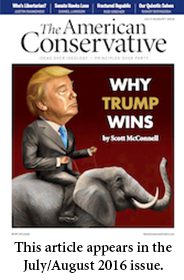If Google Were a Book

Jack Lynch, a polymathic professor of English who specializes in 18th-century literature and the history of the English language at Rutgers, is author of such earlier works as The Lexicographer’s Dilemma: The Evolution of ‘Proper’ English, from Shakespeare to South Park and Samuel Johnson’s Insults: A Compendium of Snubs, Sneers, Slights, and Effronteries from the Eighteenth-Century Master.
You Could Look It Up—another large, exuberant volume from a man who loves books (that includes scrolls, tablets, pillars, parchment, manuscripts, the codex), language, libraries, history—is intended as “both a history and a love letter to the great dictionaries, encyclopedias, and atlases.” But it may also, he fears, be “something of a eulogy: we may be approaching the end of the era of the reference book.”
From among reference works ranging from The Code of Hammurabi to Pliny’s Natural History, from The Domesday Book to Dr. Johnson’s Dictionary of the English Language to The Great Soviet Encyclopedia, from The Guinness Book of Records to Schott’s Original Miscellany (a reference book for which “the word ‘quirky’ was invented”), and ending with a discussion of Google and Wikipedia (the “googluvian era”), Professor Lynch chooses 50 works exemplifying “the encyclopedic dream” of “collecting all the world’s knowledge in one place”—a goal that has existed “for as long as there has been writing.”
The 50 works are organized into two per chapter, 25 chapters inter-spliced with half-chapters on loosely related subjects. Chapter 10, for instance, deals with the production of two great dictionaries, the Dictionnaire de l’Academie française, 1694; and Samuel Johnson’s A Dictionary of the English Language, 1755.
Lynch calls the French Academy’s product “the most important academic dictionary of all time” produced by “the greatest of the national academies then and now.” In contrast, England had no academy and its first real national dictionary would be produced by one man, a journalist and scholar known to only a few, “a gawky bundle of nervous tics who twitched and spat as he talked.”
Yet the choice was inspired. “His memory was prodigious, and few could match his reading.” He promised to produce a dictionary rivaling that of the French academy in three years. “Disbelievers scoffed: forty scholars had needed forty years to produce the Dictionnaire.” Dr. Johnson’s riposte: “This is the proportion. Let me see; forty times forty is sixteen hundred. As three to sixteen hundred, so is the proportion of an Englishman to a Frenchman.”
“He did, in fact, miss his deadline,” writes Professor Lynch. “From contract to publication took not three years but nine—still an impressive proportion next to the sixteen hundred man-years the French had taken.”
Chapter 10½, “Of Ghosts and Mountweazels,” opens with a reference to Dr. Johnson that leads into a discussion of fakes and mistakes. If you look up the word “froupe” in Dr. Johnson’s Dictionary, you’ll find it means “To dive with a sudden impetuosity. A word out of use.” But more than that, it’s a word that never existed. Dr. Johnson, having misread the word “soupe,” meaning to swoop, created a new word.
Such instances of “ghost words,” says Lynch, “abound in dictionaries.” And they are not always accidental. “Some incorrect entries are intentional … The German Brockhaus Enyzykopadie has a tradition of including one prank entry in every edition.”
And in 1975, the New Columbia Encyclopedia included a long entry on the distinguished American fountain designer Lillian Virginia Mountweazel, celebrated author of Flag’s Up, a collection of photographs of rural mailboxes. Tragically, Ms. Mountweazel’s life would come to a premature end, cut short in an explosion while researching an article for Combustibles magazine. “The term mountweazel,” writes Lynch, “is now used to refer to these mischievous entries inserted in reference books.”
“Unpersons,” treated in Chapter 24½, directly after an analysis of the Great Soviet Encyclopedia, share some characteristics of mountweazels. They don’t exist. And officially, never did.
“Readers of the second edition of the Great Soviet Encyclopedia might be interested to read of the career of Lavrentii Pavlovich Beria, the state security chief under Stalin.” The lengthy entry traced his rise through the ranks of the Communist Party to the post of commissar general of state security. But then in 1953, he fell from favor and was executed for treason.
“The Party found itself in an embarrassing position: the official state encyclopedia now included a laudatory entry on a traitor.” The solution? Subscribers were sent—“at no extra charge!—a new set of pages 21 through 24. They were instructed to cut out the original pages ‘with a small knife or razor blade’ and to paste the new ones in their place.” Thus are unpersons created and encyclopedias edited in totalitarian states.
In democracies, the process of creating “unpersons” is less brutal. In this regard, a semi-chapter titled “Reading the Dictionary,” for no good reason following a chapter on Bartlett’s Familiar Quotations and Brewer’s Dictionary of Phrase and Fable, stirred a personal recollection.
Some decades ago, I visited a man for whom I’d worked who’d been suddenly forced to resign his high office. He was temporarily working out of quarters near the White House. It was a turbulent period, and many loyalists believed he had been set up, at a time when everyone was out to save his own skin.
I admired him greatly and was seeing him for the first time since the resignation. He was bent over a book on his desk, writing on a yellow pad. He looked up and asked me if I’d ever read the dictionary. That, apparently, was one of things he’d been doing—writing down the words and definitions he didn’t know. He read a series of them aloud, then asked if I knew them.
While in office he’d developed a strong interest in language, and his use of words accounted for much of his political success. True, he enjoyed the services of some of the finest writers of the day. But he savored their contributions, used them to sharpen his own expression, and at times surpassed them in the speeches for which he became briefly famous, awakening that old silent majority, apparently rediscovered by Donald Trump, and making it roar.
Whatever the reason for his dictionary reading, I’ve always believed that for a time he was losing himself in something that had been a source of great pleasure in a better day, and in the process perhaps experiencing what Lynch calls “the joy of pure research.”
Among other dictionary readers, Walt Whitman “was an avid reader of dictionaries which he realized were the compost heap of all English-language literature.” Tolstoy liked to read encyclopedias. “The Beat poet Lawrence Ferlinghetti went through Webster’s Unabridged Dictionary, cover to cover.” Malcolm X, in prison, frustrated by the poverty of his language, acquired a dictionary and copied the whole book out, word for word.
Just as Nancy Sinatra’s boots were made for walking, reference books and libraries were made for browsing. In Chapter 22½, “Some Unlikely Reference Books,” Lynch shares titles found while browsing in the catalogs of some of the world’s great libraries. Among them: Phillis Browne, The Dictionary of Dainty Breakfasts; Michael Newton, Bad Girls Do It! An Encyclopedia of Female Murderers; Michael Newton and Judy Ann Newton, The Ku Klux Klan: An Encyclopedia (“of interest only to the most ardent students of the Ku Klux Klan”); Matthijs Van Boxsel, De Encyclopedia van de Domheid—A Dutch and Chinese Encyclopedia of Stupidity, published in Shanghai; and finally, nicely juxtaposed with Ms. Browne’s Dainty Breakfasts, is James A. Yannes, Collectible Spoons of the Third Reich: With Extensive Historical Exposition.
Lynch wraps up this highly readable history with a discussion of the new electronic reference sources such as Wikipedia, about which he has reservations, as do many serious scholars. On the most basic level, Wikipedia is “assembled by uncredentialed volunteers,” with a “strong presentist bias.” For instance, “the first George to serve as president of the United States, Washington, has a Wikipedia entry of roughly 19,000 words; the most recent President George, this time W. Bush, gets 27,000.”
Wikipedia also “favors the fashionable.” Thomas Aquinas “weighs in at just over 37,000 words on his life and major works; Michael Jackson warrants five times the space. The notorious and infamous do well: the account of O. J. Simpson’s life and criminal trials occupies nearly 21,000 words, more than the entries for Florence Nightingale and Mother Teresa combined.”
As “the student’s savior and the teacher’s bane,” Wikipedia has caused at least one college history department to ban citations of websites on student papers. Overreaction? Perhaps. Many online sources are “as thoroughly vetted as print resources.” But many aren’t. In the end, the physicist Freeman Dyson “captures the paradox well.” ‘“Among my friends and acquaintances,” as Dyson puts it, “everybody distrusts Wikipedia, and everybody uses it.”
As does Lynch: “I confess that even though I adore dusty dictionaries and surround myself with them, I wrote hardly a page of this book without turning to Google, Wikipedia, or both.” Nevertheless, there are dangers involved in the extensive use of these sources, the greatest that “we run the risk of living in an information monoculture.”
 “More information is more readily available to more people than at any time in human history.” A twelve-year-old with a cheap computer “has access to more information than the wealthiest scholars and librarians just a generation ago,” and anyone with a smartphone owns orders of magnitude “more information than fit in the Library of Alexandria.”
“More information is more readily available to more people than at any time in human history.” A twelve-year-old with a cheap computer “has access to more information than the wealthiest scholars and librarians just a generation ago,” and anyone with a smartphone owns orders of magnitude “more information than fit in the Library of Alexandria.”
Yet while the information to which we now have access seems nearly unlimited, in some ways our horizons have narrowed. “Google has become the first—and for many people, only—stop for seeking information on everything.” That means that we’re increasingly dependent on a single source—“not a library, not a set of books, but a computer connected to other computers around the world.”
“I hope my survey of attempts to collect the world’s information … serves as a reminder of the sheer variety of information sources [available] and helps to keep us attentive to the need for multiple sources of information, multiple ways of organizing the world, multiple points of view,” Lynch writes. “I hope too, that the impossibility of ever achieving the encyclopedic dream induces healthy skepticism about the sources we do have.”
John R. Coyne Jr., a former White House speechwriter, is co-author with Linda Bridges of Strictly Right: William F. Buckley Jr. and the American Conservative Movement.
Comments